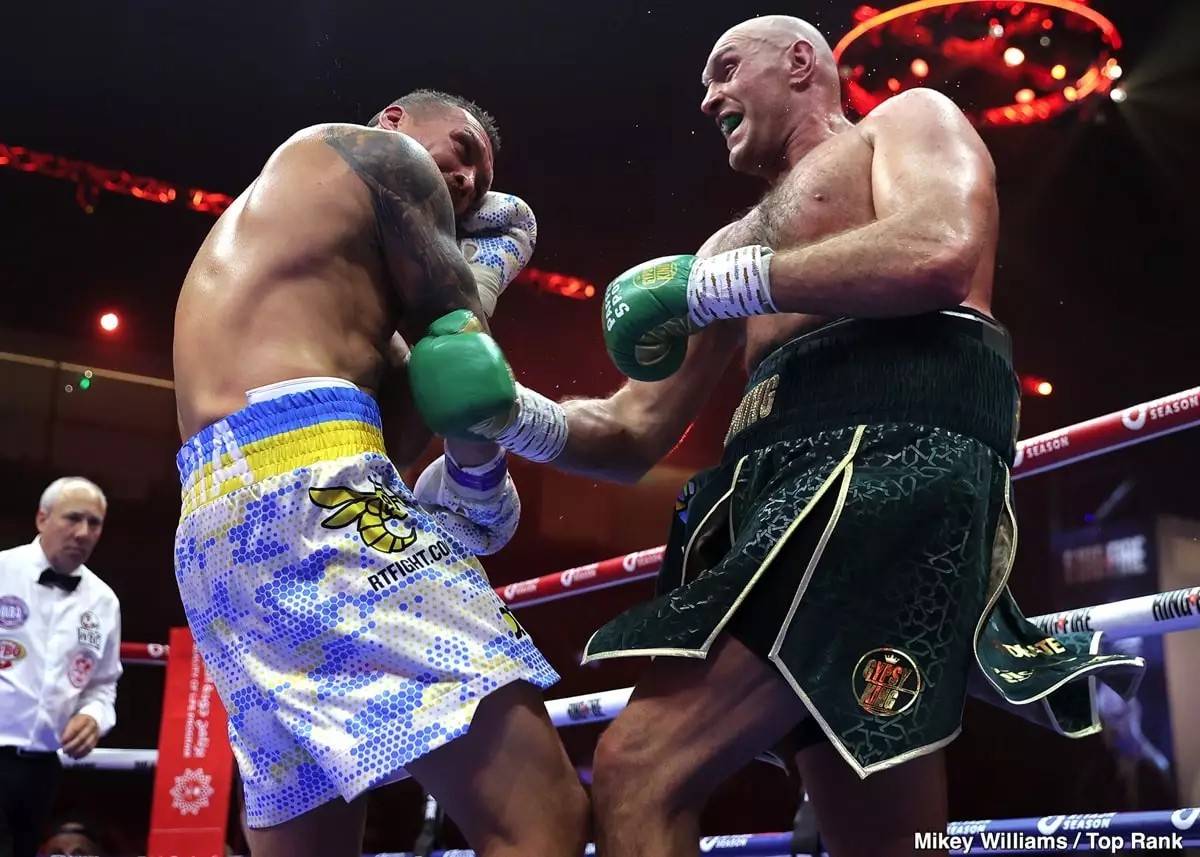Tyson Fury, the brash and controversial former heavyweight champion, finds himself in a precarious position as he gears up for his highly anticipated rematch with current champion Oleksandr Usyk on December 21st. The narrative surrounding this matchup raises the question of whether Fury’s mentality is helping or hindering his chances in the ring. It is clear that Fury has adopted a ‘victim mentality’ leading into this fight, a mindset that could stand in stark contrast to the ruthless determination displayed by his opponent.
A Prelude to Controversy: Fury’s Victim Mentality
In the aftermath of their initial bout on May 18th, Fury has maintained that external forces—namely, the judges—conspired against him. His contention is that a slew of unfavorable scoring prevented him from securing a victory, even though the fight itself demonstrated Usyk’s tactical superiority. Instead of focusing on the lessons from the defeat, Fury seems to be weaving a narrative wherein he is once again the underdog seeking to overcome not just Usyk, but also the biases he believes exist within the boxing establishment.
This self-victimization could be detrimental to Fury’s performance. If he goes into the ring with the mindset that he must “knock out” Usyk to avoid a bias from the judges, he may become overly focused on aggression rather than strategic boxing. Fury’s inclination to view himself as a victim diverts attention from enhancing his technique and adaptability, characteristics that are critical against a fighter as nimble as Usyk.
During their last encounter, Fury’s approach left much to be desired. Some rounds, such as the early exchanges and several in the middle section of the fight, were largely controlled by Usyk. Despite a marginally favorable score from one judge, the gulf in performance was evident. Usyk’s ability to dominate granular sections of the bout exposed the flaws in Fury’s game plan, particularly his propensity for being outmaneuvered.
The notion that Fury can rely on size and strength alone against a fighter of Usyk’s caliber is fundamentally flawed. Usyk’s agility, technical prowess, and sharp combinations act as significant counters to Fury’s slow and cumbersome style. Therefore, if Fury’s solution is to score a knockout, it will likely require a considerable shift in his tactical approach—one where he must press without becoming reckless.
Fury’s remarks about being in a position where he feels the need to take the fight out of the judges’ hands indicate a certain lack of confidence, which may affect his mental state heading into the rematch. He must reassess his understanding of the judging process; judges are not merely unbiased spectators but professionals assessing performance. If he continues to dwindle on the idea that he’s fighting against a fixed system, he may find himself entrapped in a psychological spiral, allowing Usyk to capitalize on any hesitation.
Fury’s statement invoking the context of his fight against Deontay Wilder in 2020 won’t serve him well against Usyk. The parameters have shifted significantly between the two matchups; Wilder is a knockout artist, whereas Usyk’s style is defined by precision and strategy. Drawing parallels between the two fighters could lead Fury to replicate past mistakes instead of innovating new tactics tailored for Usyk’s skill set.
Fury’s admission of stepping into the ring as a challenger rather than a champion suggests he may be approaching this fight with renewed vigor. He claims that this role triggers something within him, igniting a fire for competition that has been missing. However, simply adopting the underdog narrative does not guarantee success. It is the substance, preparation, and strategic execution that will define the outcome.
Additionally, Fury’s speculation about a potential trilogy with Usyk implies he anticipates continued confrontation. Yet, the likelihood of that occurring hinges on his performance in December. If Fury fails to adjust to the combat dynamics and succumb to his victim script, he could find himself delayed, paving the way for future matchups that may never materialize.
As Tyson Fury readies for his rematch with Oleksandr Usyk, he stands at a crucial intersection—a mental framework shrouded in perceived victimhood clashing with the raw essence of competition. While the rapid evolution of his narrative has the potential to galvanize him, it also poses risks that threaten to undermine his resilience in the ring. Ultimately, overcoming both external perceptions and internal struggles will dictate whether Fury rises to the challenge or falters under the weight of his self-imposed expectations.

